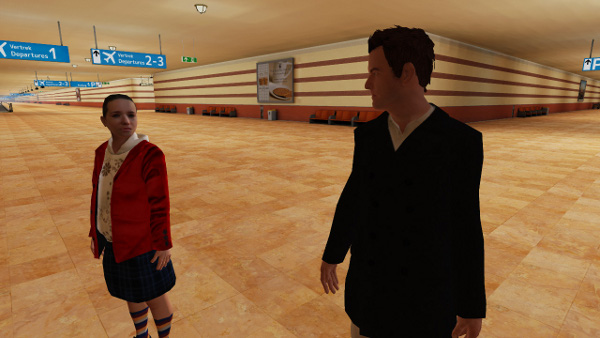
When I see unique utilisation of game engines I’m always drawn to define whether it’s actually a game or if it is a simulation. There is a huge body of theory already out there that comes up with stringent guides in how to separate the two. What makes ‘Leaving’ interesting is that it sits on that line quite purposefully. Games are usually required to have goals to achieve to acquire scores which can be improved, whereas simulations don’t have such elements. Even if they occur in fanciful environments or are completely abstract, if ‘winning’ consists of triggering a series of predetermined events, like an actor coming to their mark to say their line, then it’s difficult to classify it as a game, technically speaking.
This is probably why Tommy Rousse calls this game a ‘provocation machine.’ Leaving is based on the poetry of Antonio Machado, seeking to emulate that sensation of longing and bereavement when leaving a familiar place and loved ones. Whether the piece includes options to access different narrative strands due to the players choices will be what either makes this a game or a simulation. At any rate the developer, Mimicry games is billing it as such and with it trying to redefine the boundaries of gaming. Following in the path of ‘Dear Esther’ and, at a bit of a stretch, ‘Heavy Rain,’ this game uses music and shot composition to engage with an emotionally complex narrative.
‘Leaving’ was released on the 21st of this month and can be purchased in the App Store for iOS at $2.99 USD. Click here for a direct link.

